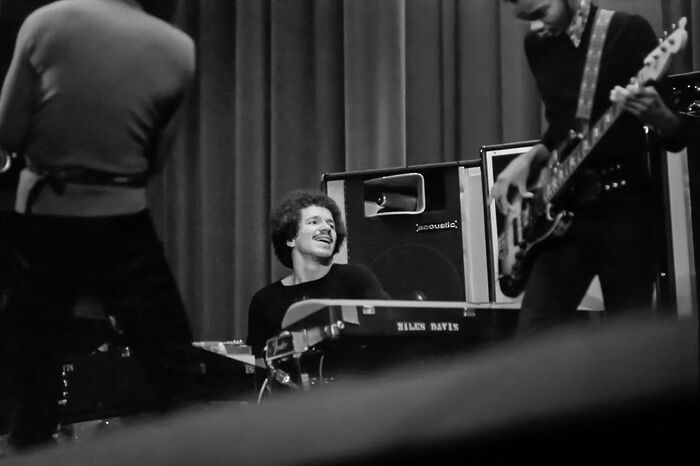Talent in pop music: ‘I almost never notice Ringo’s drumming, and that’s a good thing’
Following Quincy Jones’ declaration that the Beatles were “no-playing motherfuckers”, William Poulos asks how important instrumental abilities actually are in crafting the perfect popstar

The revered music producer Quincy Jones drew some attention last week after he said that The Beatles couldn’t play their instruments. In fact, he called them “no-playing motherfuckers,” and told the story of how, while recording Ringo Starr’s first solo album, he and George Martin asked the session drummer Ronnie Verrell to record a part Ringo couldn’t play. This story sounds like the one associated with the recording of The Beatles’ song ‘Love Me Do’. The Beatles first recorded ‘Love Me Do’ on 4th September 1962 with Ringo on drums, but re-recorded it a week later with Andy White (“a professional drummer”) on drums and Ringo demoted to the tambourine.
‘Love Me Do’ was the first single from the group, who had been signed not because of their musical or song-writing abilities but because of their charismatic appeal. The advent of rock and roll made this possible, but as the personalities became more vivid the music became less demanding. At the same time, the refined and structured popular songs from Tin Pan Alley gave way to looser and rougher forms of popular song. But part of the old fogeys’ complaints was surely the recognition that the young people could dance to The Beatles, a form of excitement unavailable to a generation which had only Bing Crosby.
Musicianship – the ability to play an instrument well – returned to popular music in the mid-1960s. Guitar players such as Eric Clapton, Jimi Hendrix, and Jimmy Page were exceptionally good at their instruments and had huge popular appeal. (A famous piece of graffiti read “Clapton is God”.) Guitarists in pop music continued to improve their technique throughout the 1970s and reached a summit in the 1980s, the decade which gave us Hair Metal, or Glam Metal. The guitarists in these bands – Van Halen, Poison, Bon Jovi – had pointy guitars, long hair, and leather trousers, but they were nerds; they practised for hours every night and cared whether their plectrums were 1.2mm or 1.5mm thick. People now often mock the pomp and bombast of these bands, but they were made up of good musicians.
The success of Nirvana’s album Nevermind changed how the guitar player functioned in a popular band. Suddenly, technique was very uncool. In many Nirvana songs, the guitar doesn’t play in the verse at all, and the guitar solos rarely do more than repeat the vocal melody. In 1993 Nirvana’s guitarist Kurt Cobain, said: “I have no concept of knowing how to be a musician at all what-so-ever... I couldn’t even pass Guitar 101.”
Extreme technical proficiency hasn’t resurfaced in the instrumentalists of pop music, and in the past twenty years seems to have existed in only female vocalists: Adele, Lady Gaga, and – the best of all in my opinion – Amy Winehouse. (The only exception I know is John Mayer, who is one of the best guitarists in the world but leaves all his guitar playing for live performances.)
“When I listen to The Beatles, I almost never notice Ringo’s drumming, and that’s a good thing: his drumming never distracts you from the most important part of the song, the singing”
While the average pop drummer today is much better than Ringo was in the early 1960s, Ringo was the perfect drummer for The Beatles; had he been more proficient, he might not have fit the musical style at the time, which was relaxing the standards of musicianship. When I listen to The Beatles, I almost never notice Ringo’s drumming, and that’s a good thing: his drumming never distracts you from the most important part of the song, the singing.
In this respect, he is a much better drummer and musician than some more technically proficient than him. For example, Eddie Van Halen, an extremely good guitarist, was invited to play the guitar solo on Michael Jackson’s song Beat It. He did, and the result is as misplaced as a shark in a spa. A worse guitarist might have avoided such a mistake.
 Comment / Cambridge’s tourism risks commodifying students18 April 2025
Comment / Cambridge’s tourism risks commodifying students18 April 2025 News / Cambridge student numbers fall amid nationwide decline14 April 2025
News / Cambridge student numbers fall amid nationwide decline14 April 2025 News / Greenwich House occupiers miss deadline to respond to University legal action15 April 2025
News / Greenwich House occupiers miss deadline to respond to University legal action15 April 2025 Comment / The Cambridge workload prioritises quantity over quality 16 April 2025
Comment / The Cambridge workload prioritises quantity over quality 16 April 2025 Sport / Cambridge celebrate clean sweep at Boat Race 202514 April 2025
Sport / Cambridge celebrate clean sweep at Boat Race 202514 April 2025





